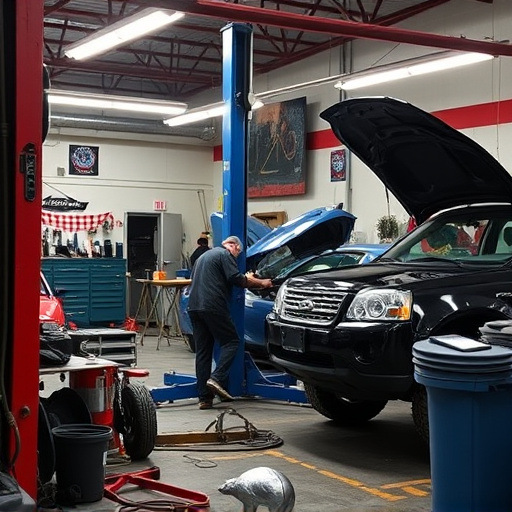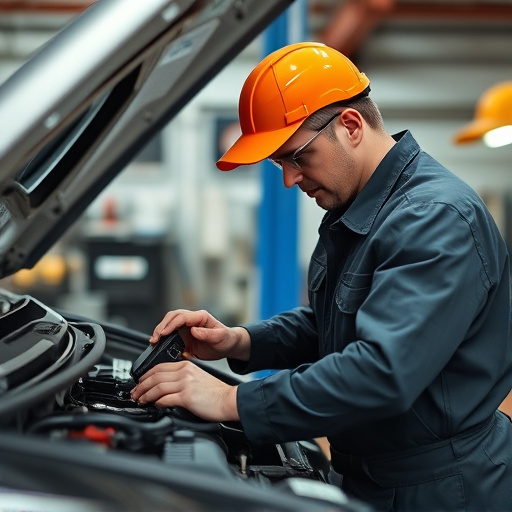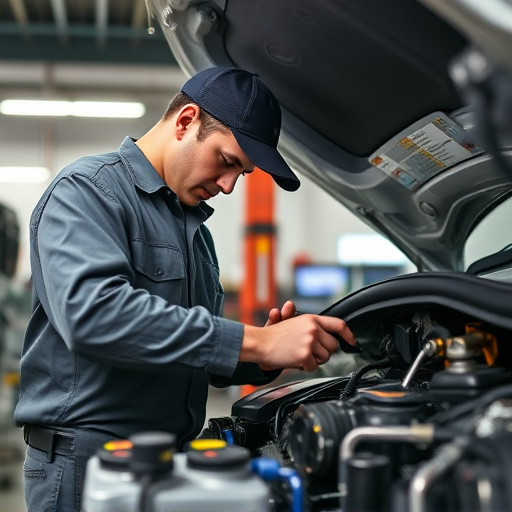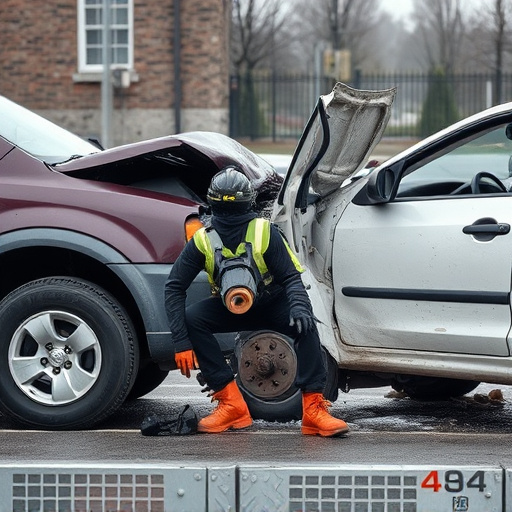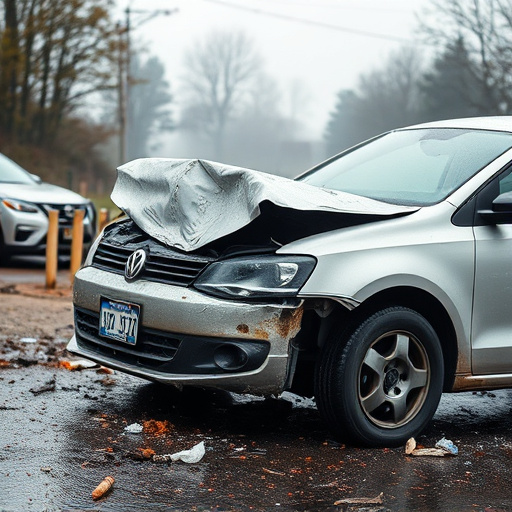Training programs are key to successful hazardous waste management, providing specialized knowledge and skills crucial for safe handling of hazardous materials like old batteries, toxic solvents, and metallic scraps. These programs foster teamwork through open communication, collaborative problem-solving, and mentorship, ensuring strict adherence to safety protocols and continuous process improvement, setting hazardous waste management apart from sectors like auto dent repair or vehicle body repair.
Training programs are instrumental in fortifying hazardous waste management teams, ensuring they possess the specialized knowledge and skills essential for navigating complex challenges. By focusing on teamwork and collaborative practices, these programs cultivate a robust environment where professionals can effectively communicate and coordinate during crises. Staying updated with industry best practices and safety measures, including regulatory changes and advanced technologies, is paramount. Continuous learning initiatives within these teams foster adaptability, enhance efficiency, and ultimately improve the overall management of hazardous waste, contributing to safer communities and a healthier environment.
- The Role of Training in Building Expertise and Teamwork
- – The importance of specialized knowledge in hazardous waste management
- – How training programs foster a collaborative environment
The Role of Training in Building Expertise and Teamwork

Training programs play a pivotal role in building expertise and fostering teamwork within hazardous waste management teams. By providing specialized knowledge and skills, these programs empower employees to handle complex tasks with confidence and precision. Equally important, training facilitates open communication and collaboration, enabling team members to share insights, address challenges collectively, and continuously improve processes. This collaborative approach not only enhances the overall efficiency of hazardous waste management operations but also ensures adherence to stringent safety protocols.
Unlike other sectors, where issues like auto dent repair or vehicle body repair might be addressed by specialized technicians, hazardous waste management demands a unique blend of technical proficiency and situational awareness. Training programs bridge this gap by imparting not just practical skills in handling hazardous substances but also strategic thinking and problem-solving abilities. This holistic approach ensures that teams are well-prepared to navigate unexpected scenarios, ensuring the safety of personnel and minimizing environmental impact—a critical aspect that sets them apart from sectors dealing with car scratch repair or similar tasks.
– The importance of specialized knowledge in hazardous waste management

In the realm of hazardous waste management, specialized knowledge is paramount for ensuring safety and environmental protection. The nature of this work demands a deep understanding of the unique properties and risks associated with various types of hazardous materials. Team members must be adept at identifying, handling, and disposing of these substances correctly, adhering to stringent regulations and protocols. This specialized expertise goes beyond general training; it involves learning about chemical reactions, toxicity levels, containment procedures, and emergency response strategies.
Investing in comprehensive training programs equips teams with the necessary skills to navigate complex scenarios. Through workshops, simulations, and hands-on exercises, workers gain practical experience in managing auto maintenance waste, such as old batteries, toxic solvents, and metallic scraps, which are often overlooked but require specific handling procedures. Similarly, body shop services professionals can enhance their knowledge about disposing of paint thinners, sandpaper, and other automotive chemicals safely, avoiding potential environmental contamination and ensuring the well-being of both workers and communities.
– How training programs foster a collaborative environment

Training programs play a pivotal role in fostering a collaborative environment within hazardous waste management teams. These structured learning initiatives bring together team members from diverse backgrounds and expertise, encouraging open communication and knowledge sharing. Through interactive workshops, simulations, and team-building exercises, employees learn to work seamlessly as a unit, enhancing their ability to address complex waste management challenges collectively. By breaking down silos and promoting cross-functional collaboration, training programs ensure that every team member understands their role in the broader process, leading to more efficient and effective hazardous waste handling.
Moreover, these programs facilitate the exchange of best practices, where experienced professionals mentor newcomers, ensuring a continuous cycle of improvement. This knowledge transfer not only benefits individual growth but also strengthens the overall capabilities of the team. As teams gain confidence in their abilities, they become better equipped to handle unexpected situations, such as emergencies or sudden spikes in waste volume, drawing upon their collective expertise and problem-solving skills. Ultimately, this collaborative mindset contributes significantly to the safety and success of hazardous waste management operations, whether it involves tire services, Mercedes Benz repair, or auto body restoration processes.
Training programs play a pivotal role in strengthening hazardous waste management teams by fostering expertise and teamwork. Specialized knowledge is essential for safely and effectively navigating complex waste management scenarios, and regular training ensures teams remain adept at handling diverse challenges. Moreover, these programs create a collaborative environment, encouraging open communication and mutual learning among team members. By investing in comprehensive training, organizations can enhance their hazardous waste management capabilities, ultimately contributing to safer and more sustainable practices across the industry.


